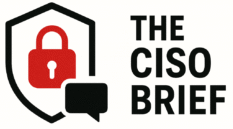Top Highlights
-
Proposed Cyber Regulations: New York State has introduced draft regulations aimed at enhancing cybersecurity standards for water and wastewater systems, requiring utilities to implement necessary controls, risk evaluations, and monitoring systems.
-
Compliance Deadlines: Utilities must comply with DEC and DOH regulations by January 1, 2027, and PSC regulations by January 1, 2026, following adoption of the rules.
-
Training and Support: Certified wastewater operators will need to complete mandatory cybersecurity training, and grants along with technical assistance will be provided to help improve cyber resilience among water facilities.
- Feedback Period: Public comments on the proposed regulations are open until September 3, 2025, for DOH and PSC, and until September 14, 2025, for DEC, emphasizing community involvement in shaping cybersecurity protocols.
Problem Explained
This week, New York State embarked on a crucial initiative aimed at bolstering the cybersecurity of its water and wastewater systems by opening proposed regulations for public feedback. Released by the New York State Department of Health (DOH) and the Department of Environmental Conservation (DEC), these regulations delineate minimum cybersecurity standards intended to fortify water infrastructure against increasingly sophisticated cyber threats. Alongside these proposals, the Department of Public Service (DPS) has introduced additional cyber regulations for various public utilities, reinforcing a comprehensive approach to safeguarding critical infrastructure. In tandem with these regulatory measures, the Environmental Facilities Corporation (EFC) has established a new grant program, coupled with technical assistance, to empower water and wastewater utilities to enhance their cyber resilience.
The impetus for this initiative stems from a growing recognition of the vulnerabilities inherent in essential service sectors, particularly the water supply, which has become a target for cyberattacks. Governor Kathy Hochul emphasized the urgency of addressing these threats, underscoring the regulations’ alignment with guidance from the Cybersecurity and Infrastructure Security Agency (CISA) and the Environmental Protection Agency. The proposed measures mandate the implementation of robust cybersecurity controls, risk evaluations, and incident response plans, while also necessitating cybersecurity training for certified wastewater operators. Stakeholders are invited to submit comments on the proposals until early September 2025, with full compliance expected by early 2026 or 2027, thereby marking a significant step in New York’s commitment to protecting public health and safety in the digital era.
What’s at Stake?
The introduction of stringent cybersecurity regulations for New York’s water and wastewater systems, spearheaded by the Department of Health (DOH) and the Department of Environmental Conservation (DEC), poses significant risks to interconnected businesses and users across various sectors. As water and wastewater utilities become more fortified against cyberattacks, any deficiencies in their cybersecurity could lead to cascading failures, endangering critical services that rely on these infrastructures, such as healthcare, public safety, and emergency response. If these utilities cannot effectively implement robust incident response plans or fail to engage mandatory cybersecurity training, they not only compromise their operational integrity but also expose downstream organizations and consumers to heightened vulnerabilities. This systemic risk escalates as attackers increasingly target essential services; a breach could disrupt service delivery, generate financial losses, and compromise public trust, thereby catalyzing a ripple effect that diminishes stakeholder confidence and damages the overall economic fabric of the region. Hence, the proposed regulations underscore an urgent call to prioritize cybersecurity, as the repercussions of inaction extend far beyond the confines of individual utilities, potentially jeopardizing the safety and security of entire communities.
Possible Actions
The urgency of timely remediation in the context of ‘New York Seeking Public Opinion on Water Systems Cyber Regulations’ cannot be overstated, as it directly impacts public health and operational integrity in an increasingly interconnected world.
Mitigation & Remediation Steps
- Conduct thorough risk assessments.
- Implement advanced cybersecurity protocols.
- Establish real-time monitoring systems.
- Develop incident response plans.
- Provide ongoing staff training.
- Collaborate with local and federal agencies.
- Regularly test and update systems.
NIST CSF Guidance
NIST Cybersecurity Framework (CSF) emphasizes proactive risk management and resilience strategies, advocating for continual improvement and adaptation. For deeper insights, consult NIST Special Publication 800-53, which outlines security and privacy controls essential for safeguarding water system infrastructures.
Continue Your Cyber Journey
Discover cutting-edge developments in Emerging Tech and industry Insights.
Explore engineering-led approaches to digital security at IEEE Cybersecurity.
Disclaimer: The information provided may not always be accurate or up to date. Please do your own research, as the cybersecurity landscape evolves rapidly. Intended for secondary references purposes only.
Cyberattacks-V1

